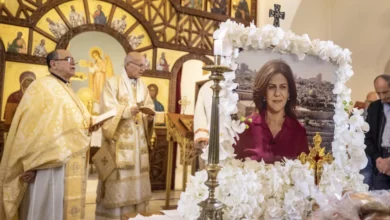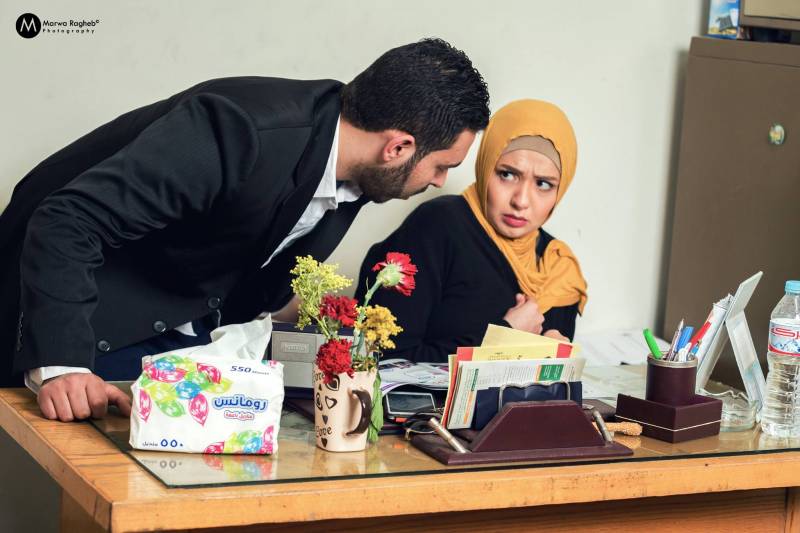Around 100 journalists and activists demonstrated on 29 June against state-owned newspapers for their alleged pro-security coverage of the death of Khaled Saeed, who witnesses and activists say was killed by police brutality in Alexandria earlier this month.
Journalists Without Rights and human rights activists gathered in front of state-owned Al-Gomhurriya newspaper headquarters in reaction to editorials attacking Said.
All state–owned print media supported the official Ministry of Interior’s statements confirming that Saeed had suffocated in an attempt to swallow a pack of hash, a claim supported by two autopsy reports of the Forensic Authorities.
The call-and-response chanting of the protestors described Al-Gomhurriya, the autopsy reports and Egypt’s Minster of Interior Habib el-Adly, as “batel” (illegitimate). The cries rang out underneath the headquarters of Al-Gomhurriya, the third biggest state-owned publishing house for print news media.
In his editorials the week before the protests, Mohamed Ali Ibrahim, Al-Gomhurriya’s chief editor, referred to Saeed as the “bango [Egyptian marijuana] martyr”–a label that provoked human rights activists, who believe the death was a result of police violence.
“In the past two weeks, government press continued to defame the truth known to everyone, through spreading lies,” said Radwan Adam, a reporter from Journalists Without Rights.
“These newspapers are the property of the Egyptian people…what they are doing is against the journalists’ code of honor,” added Adam, who also works for the independent daily el-Dostour.
“We are here to protest against the articles that Al-Gomhurriya newspaper’s chief editor published to defame Khaled, making judgments even before a court verdict,” said Aida Saif el-Dawla, the head of el-Nadeem Center for the Rehabilitation of Victims of Violence.
“The second examination’s preliminary report is exactly like the first one–both have professional gaps,” added el-Dawla, who said 40 international autopsy experts have volunteered to investigate the autopsy reports.
On 23 June a preliminary report on reexamining the body confirmed that Saeed’s death was caused as a result of suffocation.
Protestors held up a photograph of Saeed’s mutilated face, taken after the first autopsy, which police say was the actual cause of the obvious disfiguration. However Al-Masry Al-Youm has received eyewitness accounts stating that Saeed was extensively beaten in front of an internet café in Alexandria.
Ever since the death of Saeed on 6 June, protests have spread throughout Egypt demanding a fair trial and opposing the security apparatus’ brutality against citizens. Thousands gathered in Alexandria last Friday parallel to a visit by Mohamed ElBaradei, head of the National Association for Change and rising opposition figure, to the victim’s family.
Saeed’s death has stirred the sympathy of Egyptian youth, who went to the streets in solidarity with his case. “This case has opened a wound that will not be closed. Every young person in Egypt sees himself as Khaled Saeed,” said el-Dawla.




